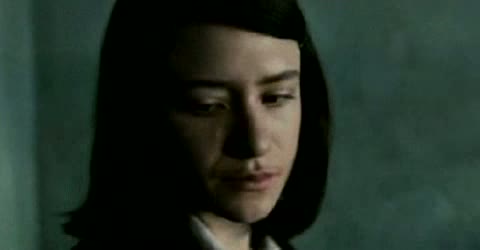Réalisation:
Marc RothemundScénario:
Fred BreinersdorferPhotographie:
Martin LangerActeurs·trices:
Julia Jentsch, Alexander Held, Fabian Hinrichs, Johanna Gastdorf, André Hennicke, Florian Stetter, Maximilian Brückner, Johannes Suhm, Lilli Jung (plus)Résumés(1)
Munich, 1943. Tandis que Hitler mène une guerre dévastatrice à travers l'Europe, un groupe d'étudiants forme un mouvement de résistance, La Rose Blanche, appelant à la chute du IIIème Reich. D'obédience pacifique, ces membres propagent des tracts antinazis, couvrant les murs de la ville de slogans, et invitent la jeunesse du pays à se mobiliser. Le 18 février, Hans Scholl et sa soeur Sophie - qui font partie du noyau dur du mouvement - sont aperçus par le concierge de l'université de Munich en train de jeter des centaines de tracts du haut du deuxième étage donnant sur le hall. Ils sont immédiatement appréhendés par la Gestapo et emprisonnés à Stadelheim. Durant les jours suivants, l'interrogatoire de Sophie Scholl est mené par l'agent de la Gestapo Robert Mohr, un véritable duel psychologique s'engage... (texte officiel du distributeur)
(plus)Critiques (1)
Sophie Scholl: The Final Days is exactly the type of film that collects stars for its theme and main character. That character is a true resistance fighter executed for anti-Nazi activities. Although I liked the film as a whole, I had and still have a feeling of a certain schematic approach and view of Sophie Scholl. I have no problem with Julia Jentsch's performance, rather with what the script prescribes her. For the overwhelming majority of the film's runtime, her character is simply brave, never stepping out of character, and except for two moments, does not show her emotions, even though she is in a hopeless situation and is facing the worst. She almost always smiles and reacts very quickly to the interrogator's verbal attacks. I read several real stories of resistance fighters and their trials in Nazi prisons, at the Gestapo, in German courts, and later in concentration camps. The Gestapo and the state court in Berlin represented very well-functioning machinery that aimed to break and destroy those being judged. Of course, it was not always necessary to physically torture the interrogated, sometimes they confessed voluntarily. The methods were similar throughout the Reich and physical punishments, threats, and various forms of torture were never far away. For Scholl to dare to give an educational lecture to her interrogator on the advantages of democracy and the sins of Nazi Germany, and later to do the same, albeit on a smaller scale, to the notorious Roland Freisler as the head of the state court, seems highly unlikely to me, although I am not familiar with the details of the trial of The White Rose. However, the People's Court in Berlin was able to break even very tough opponents, among other things, experienced war commanders collapsed under Freisler's roar during the trial of Hitler's assassins or communist resistance fighters accustomed to long years of illegality and hard conspiracy. In short, the film seems a bit too cliché and predictable to me. Overall impression: 65%.
()

